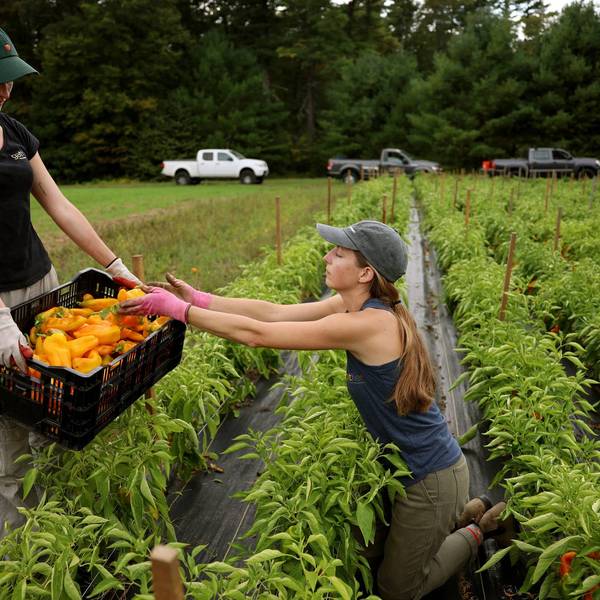The Stabenow-Roberts GMO labeling bill, which the House of Representatives is expected to vote on this week, has deepened a rift within the organic industry as farmers and other dedicated opponents of genetically modified (GM or GMO) agriculture are breaking ties with those who support the legislation (pdf), which is backed by both Monsanto and the powerful Grocery Manufacturers Association (GMA).
The farmer-controlled Organic Seed Growers and Trade Association (OSGATA) announced Wednesday that it has withdrawn its membership from the influential Organic Trade Association (OTA).
The decision was made by a unanimous vote by the group's Board of Directors and was prompted by what OSGATA describes as "duplicity towards organic farmers and consumers" when OTA signed off on the bill, despite the fact that it "would immediately preempt existing strong state GMO labeling laws that are widely supported by the Organic community and ninety percent of consumers."
The compromise legislation drafted by Sens. Debbie Stabenow (D-Mich.) and Pat Roberts (R-Kan.)--also known as the Deny Americans the Right to Know (or DARK) Act--passed in the Senate last week with a four-vote margin of victory. OSGATA says it was the organic industry's support for the bill which prompted the narrow win.
The bill will reportedly reach the House floor this week before lawmakers depart for a six-week recess and a White House spokesperson indicated on Wednesday that President Barack Obama plans to sign it into law.
"It's important for the world to understand that it was the Organic Trade Association that killed our state GMO labeling laws by backing Monsanto's Stabenow-Roberts bill," said Maine organic seed farmer and longtime OSGATA president, Jim Gerritsen, who in 2011 was the lead plaintiff in a lawsuit against Monsanto.
Gerritsen continued: "It's clear that Organic Trade Association has come under the control of a small group of lobbyists controlled by giant-food corporations that also own organic brands. In an effort to protect their own bottom lines and those of their parent companies, the reckless actions of these large parent-owned organic companies threaten the survival of organic farmers and the organic community we have all worked so hard for decades to build."
"The Organic Trade Association can no longer be trusted," he concluded, "and it's clear that organic farmers can no longer condone this dubious trade association's troubling behavior."
OSGATA board member Lyn Howe, who also owns Beach Road Farm and serves as acting director for Hawaii Seed Growers Network, said that now that "it's become clear OTA has teamed up with Monsanto and is endangering everything that we believe in," it is "high time" for organic growers like herself to opt out of the trade group "and join and work with others who understand organic farming is the right way to farm and the wave of the future."
Indeed, as Carey Gillam, journalist and research director for the nonprofit pro-labeling group U.S. Right to Know, recently reported, the controversial legislation has "blown wide open deep divisions running through the U.S. organic industry."
"Those involved characterize the organic industry as divided between the 'organic elite,'" Gillam wrote, "which includes companies owned by conventional corporate food giants, and the independently owned 'authentic organic' businesses and groups."
Also under fire is Gary Hirshberg, chairman of the Just Label It campaign and head of organic yogurt company Stonyfield Farm, who has denied accusations that he was part of the backroom negotiations. Gillam's report continued:
There has long been distrust simmering in part because of Hirshberg's hiring of Scott Faber, former chief lobbyist for the Grocery Manufacturers Association, to run Just Label It. Faber is also vice president for government affairs at the Environmental Working Group. EWG said it does not support the Roberts-Stabenow labeling proposal. Faber declined to comment.
Hirshberg issued a statement Tuesday saying Just Label It does not support the bill citing "loopholes that could limit the number of products that must carry a GMO disclosure."
"While we support a national, mandatory GMO labeling system," he said, "the legislation passed by the Senate and under consideration by the House does not give American consumers the same simple disclosure used in 64 other nations."



